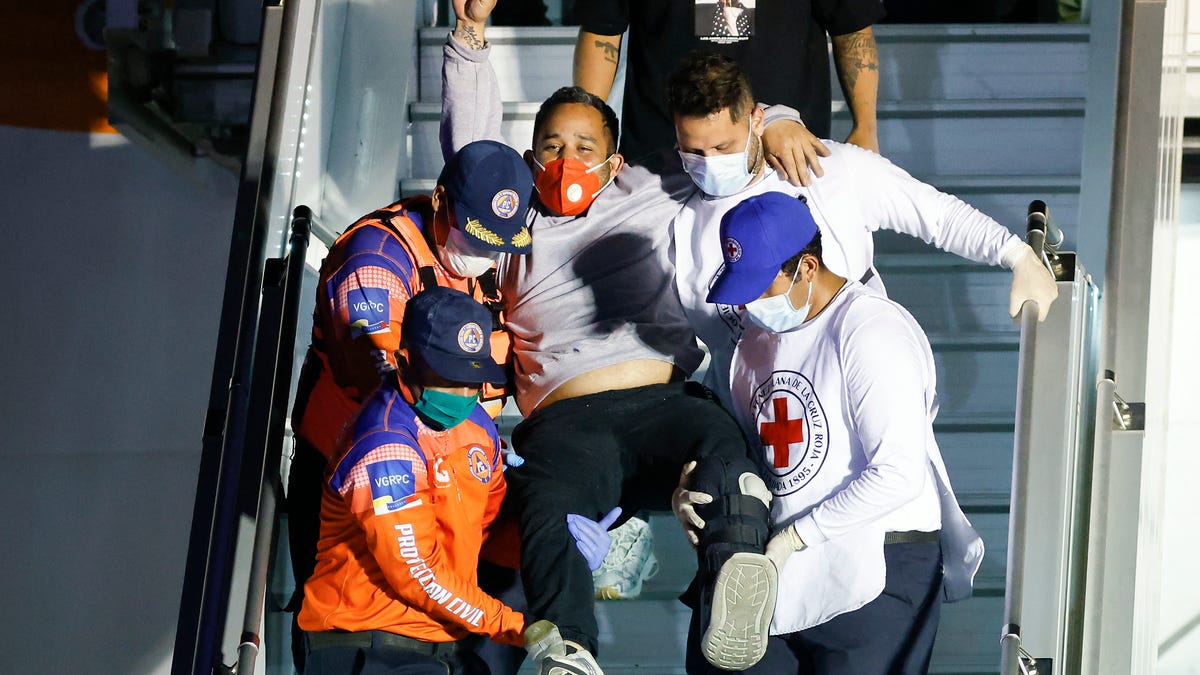US Supreme Court temporarily halts deportations of Venezuelan migrants
The U.S. Supreme Court paused President Donald Trump’s administration from deporting Venezuelan men in immigration custody.
WASHINGTON – The Trump administration is urging the Supreme Court not to block the deportation of Venezuelans accused of being members of the crime gang Tren de Aragua.
President Donald Trump declared Tren de Aragua a foreign terrorist organization and ordered the deportation of its alleged members under the Alien Enemies Act.
But the high court temporarily blocked the removals early April 19 under what is called an administrative stay, while Venezuelans fight their deportations in court.
Solicitor General John Sauer said in a filing hours later that the government only had 42 minutes to reply to the Venezuelans’ emergency appeal to the Supreme Court. He urged the court not to recognize the “irregular” appeal or grant “extraordinary” relief the Venezuelans seek.
“Those aliens are Venezuelan nationals who are unlawfully present in the United States and subject to removal under other authorities, but who the government has determined are members of the foreign terrorist organization Tren de Aragua and thus subject to removal pursuant to the AEA,” Sauer wrote. “This Court should deny applicants’ extraordinary request.”
The case is one of several pending against the Trump administration wielding the 1798 Alien Enemies Act, after two flights on March 15 carried hundreds of alleged members of Tren de Aragua and MS-13 to a notorious prison in El Salvador.
One case focuses on Kilmar Abrego Garcia, a Salvadoran immigrant who the administration acknowledged was removed by mistake but refused to return to Maryland.
Another case involves Venezuelan immigrants seeking hearings to contest their gang membership.
“We are confident in the lawfulness of the Administration’s actions and in ultimately prevailing against an onslaught of meritless litigation brought by radical activists who care more about the rights of terrorist aliens than those of the American people,” White House press secretary Karoline Leavitt said in a statement.
In the latest Venezuelan case, the American Civil Liberties Union argued in multiple courts that deportations should be halted because men were already loaded on buses and were told they would be deported.
“These men were in imminent danger of spending their lives in a horrific foreign prison without ever having had a chance to go to court,” Lee Gelernt, an ACLU lawyer, said in a statement. “We are relieved that the Supreme Court has not permitted the administration to whisk them away the way others were just last month.”
The Supreme Court ordered both sides to submit written arguments while the deportations are paused.
“The Government is directed not to remove any member of the putative class of detainees from the United States until further order of this Court,” the justices said in an unsigned decision.
Justices Clarence Thomas and Samuel Alito opposed the order.
Sauer argued that the Venezuelans’ request to the high court was “fatally premature” because they skipped over lower courts before asking the justices for relief.
“This Court should deny the application,” Sauer wrote. “Applicants’ request for relief is fatally premature, as both the lower courts in this case recognized.”
